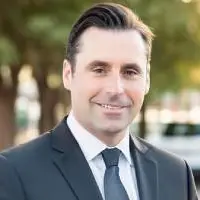About NFI North – Sidney Riverbend
NFI North’s Sidney Riverbend program was founded in 2002 and is for kids and teens ages 10 through 18 who need behavioral health support. NFI also offers substance use disorder and co-occurring disorder care, though these programs may operate from different locations. Sidney Riverbend provides a residential setting for children to heal, learn, and grow in safety.
Their mission is to help children facing residential difficulties living at home or participating in school. However, this location extends support directly to family members, too. As the name implies, it sits near the shores of the Kennebec River in Sidney, Maine.
Fully Adaptable Programming
Treatment plans should always offer flexibility. After all, no one comes to treatment with the same story or same set of experiences. That’s why so many programs feature treatment individualized to meet the needs of each client.
Here, that flexibility includes consideration for the family’s needs as well. Everyone has a part in the whole picture, so it only makes sense that their needs are reflected in appropriate care.
Education on Their Site
The Sidney Riverbend School is in place so that a child’s education needs aren’t interrupted by treatment. This is especially important for those who are experiencing challenges in the school system already. Treatment includes classes focused on maintaining age appropriate education so kids don’t fall behind.
Part of the facility’s mission is to ease reintegration into the school system. This requires a focus on meeting education standards and hitting socialization goals, which this program does.
Help for Prenatal Women
While NFI North’s perinatal treatment program isn’t offered at this location, I wanted to mention it because it’s so important. It’s a substance use disorder treatment specially designed for prenatal women. It differs from standard treatment in that its methods have to incorporate the safety of the developing child as well as the mother.
Perinatal treatment is one of the most important ways you can secure your health during pregnancy. It can also serve as a starting point for treatment, continuing to another program once your child is born. They can refer you to this program if needed.
Rehab Score
Other Forms of Payment
Private insurance refers to any kind of healthcare coverage that isn't from the state or federal government. This includes individual and family plans offered by an employer or purchased from the Insurance Marketplace. Every plan will have different requirements and out of pocket costs so be sure to get the full details before you start treatment.
Self-pay involves paying for treatment out of your own pocket. You can use savings or credit, get a personal loan, or receive help from family and friends to fund your treatment. If you don't have insurance or your insurance plan doesn't cover a specific program, self-pay can help ensure you still get the care you need.
Medicare is a federal program that provides health insurance for those 65 and older. It also serves people under 65 with chronic and disabling health challenges. To use Medicare for addiction treatment you need to find a program that accepts Medicare and is in network with your plan. Out of pocket costs and preauthorization requirements vary, so always check with your provider.
Medicaid is a state based program that helps lower-income individuals and families pay for healthcare. Medicaid covers addiction treatment so those enrolled can use their coverage to pay for rehab. When a program accepts Medicaid the client often pays very little or nothing out of their own pocket.
Addiction Treatments
Levels of Care
Residential treatment programs are those that offer housing and meals in addition to substance abuse treatment. Rehab facilities that offer residential treatment allow patients to focus solely on recovery, in an environment totally separate from their lives. Some rehab centers specialize in short-term residential treatment (a few days to a week or two), while others solely provide treatment on a long-term basis (several weeks to months). Some offer both, and tailor treatment to the patient's individual requirements.
Completing a drug or alcohol rehab program shouldn't spell the end of substance abuse treatment. Aftercare involves making a sustainable plan for recovery, including ongoing support. This can include sober living arrangements like halfway houses, career counseling, and setting a patient up with community programs like Alcoholics Anonymous (AA) or Narcotics Anonymous (NA).
Treatments
Many of those suffering from addiction also suffer from mental or emotional illnesses like schizophrenia, bipolar disorder, depression, or anxiety disorders. Rehab and other substance abuse facilities treating those with a dual diagnosis or co-occurring disorder administer psychiatric treatment to address the person's mental health issue in addition to drug and alcohol rehabilitation.
Mental health rehabs focus on helping individuals recover from mental illnesses like bipolar disorder, clinical depression, anxiety disorders, schizophrenia, and more. Mental health professionals at these facilities are trained to understand and treat mental health issues, both in individual and group settings.
Programs
Young adulthood can be an exciting, yet difficult, time of transition. Individuals in their late teens to mid-20s face unique stressors related to school, jobs, families, and social circles, which can lead to a rise in substance use. Rehab centers with dedicated young adult programs will include activities and amenities that cater to this age group, with an emphasis on specialized counseling, peer socialization, and ongoing aftercare.
Clinical Services
Group therapy is any therapeutic work that happens in a group (not one-on-one). There are a number of different group therapy modalities, including support groups, experiential therapy, psycho-education, and more. Group therapy involves treatment as well as processing interaction between group members.
In individual therapy, a patient meets one-on-one with a trained psychologist or counselor. Therapy is a pivotal part of effective substance abuse treatment, as it often covers root causes of addiction, including challenges faced by the patient in their social, family, and work/school life.
Amenities
-
Private Setting
-
Private Rooms
Staff & Accreditations
Staff

Luke Reynard, MBA
Executive Director

Jill Allen, MS
COO

Kristi Vazifdar, MBA
CFO

Terri Brennan, PHR, SHRM-CP
Director HR
Accreditations

The Joint Commission, formerly known as JCAHO, is a nonprofit organization that accredits rehab organizations and programs. Founded in 1951, the Joint Commision's mission is to improve the quality of patient care and demonstrating the quality of patient care.
Joint Commission Accreditation: Yes
Contact Information
3895 W River Rd
Sidney, ME 04330